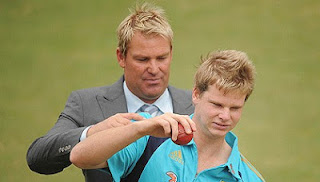Jones spends his days as a cricket coach and commentator these days, and it is in the latter profession that he has made a score of late.
In his latest piece for "The Age", Jones writes of the on-going animosity between the South African and Australian teams since the period of South Africa's re-entry to International Cricket, drawing comparisons with the Australian teams respectful relationships with other opponents such as the West Indies and India.
And herein lies Jones' dash; the level of respect exists as both teams recognise each others different cultures and respect them, whereas South Africa had none.
That's not to say there wasn't a culture within the post-apartheid South African team, just one that the players weren't supposed to represent, and like the awkward kid at school; they were trying a little too hard to impress everyone else with the culture they decided they wanted to represent.
 |
| The Star Wars kid may or may-not have been their cultural advisor. |
Jones gives telling examples of the crowds using 'sheep' jokes (implying relationships between Australians and sheep) with them, assuming a familiarity that wasn't there, as well as pointing live guns at the opposition; seeming once more like that awkward kid wanting to be seen as 'cool' or respected, without any knowledge of how.
This isn't to say that there isn't a culture within the South African team now. The Proteas are now the undisputed Number One test team in the world and are a true representation of their country's diversity. They have had a balanced side for a number of years and seem free of the anxiety or wanting to fit in or be respected.
Lets hope the South Africans have also learned that Sheep jokes should be aimed at Kiwis too.







